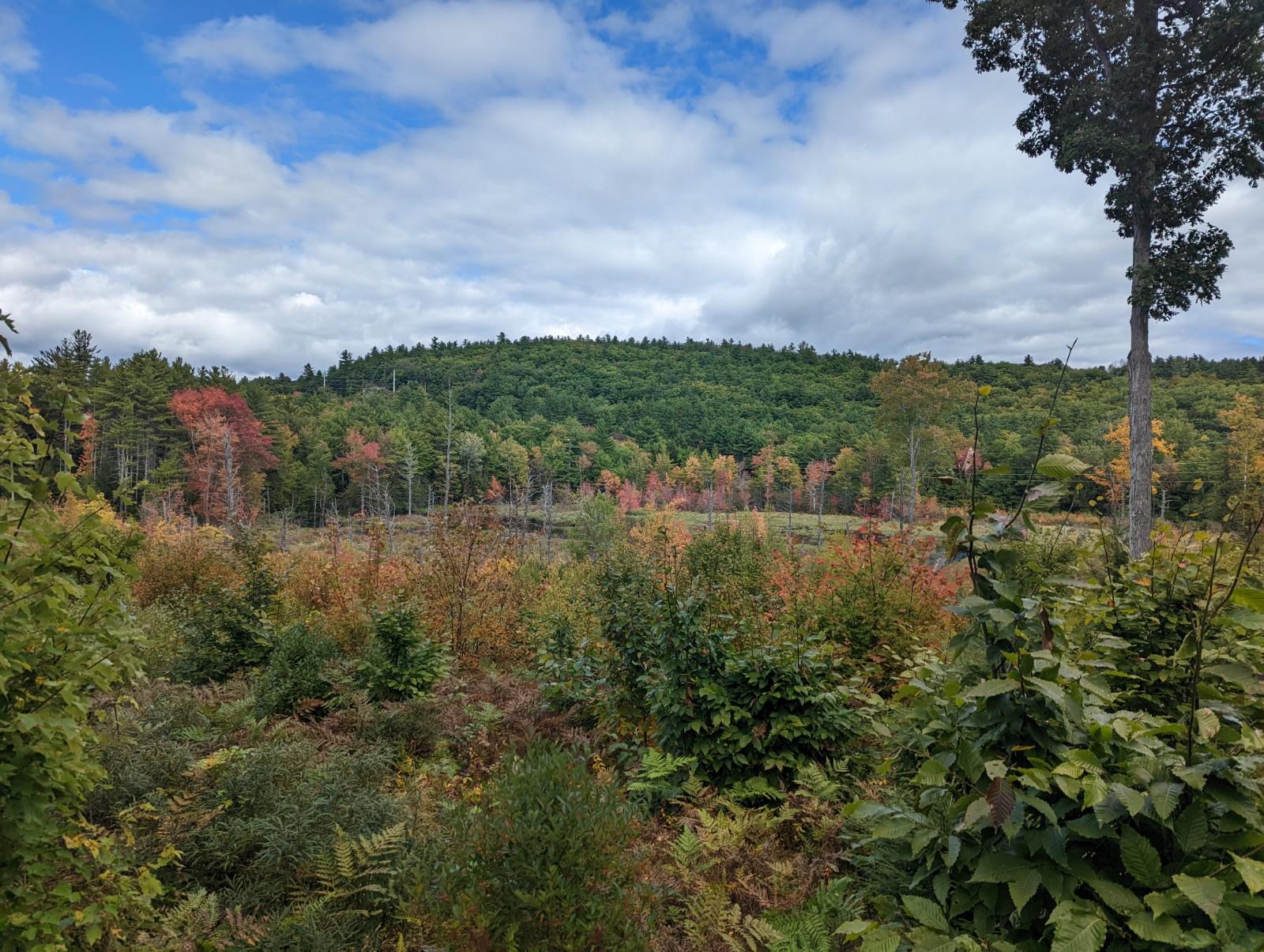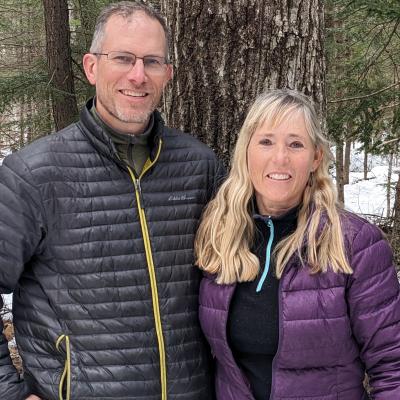Derevya Farms adds to conserved lands in the Merrimack River Watershed and enhances wildlife habitat near Bear Brook State Park
- Tags:
- Land Conservation,
- Wildlife,
- Clean Water

A view of Derevya Farms in the fall.
Laura Bonk and Phil Trowbridge bought 116 acres in Allenstown in 1997. At the time, they were starting out as a young scientists and outdoor enthusiasts, and they knew that this undeveloped land on the northern boundary of Bear Brook State Park was a special spot. Now, some 25 years later, the couple has placed a conservation easement on the land.

The Bonk-Trowbridge family generously donated the conservation easement and will retain ownership of the land. The Society for the Protection of New Hampshire Forests raised funds for the stewardship and project costs of placing an easement on the land. In recognition of its watershed significance, the project was awarded a grant of $8,000 by the Merrimack Conservation Partnership, and the balance of funding was provided through generous donations from individuals across the state.
“Ever since we bought the land, we have been planning to conserve it,” states Bonk.
“We have reached a stage in life where you need to focus on doing important things," adds Trowbridge. "This donation is one of those things.”
The conservation easement permanently protects 116 acres in the Merrimack River Watershed. Over the past decade, conservation, advocacy, and educational groups have joined together to protect the Merrimack River watershed. As a result, of the Forest Society and other partners have worked to conserve a chain of important properties in the watershed. The 116-acre Derevya Farms property is one of those important links.
The Derevya Farms land includes frontage along Little Bear Brook, which drains into Bear Brook and the Suncook River, all tributaries in the Merrimack Watershed. As a result, it ranks as a high priority for conservation in the Merrimack River Watershed Conservation Plan, which targets the protection of high-quality forested watershed lands to protect water quality throughout the region.
“More than 700,000 people in Massachusetts and New Hampshire rely on the Merrimack River as the source of their drinking water and its groundwater feeds private wells throughout, so the health of the watershed has a direct impact on the quality of the water we drink,” states Jack Savage, president of the Society for the Protection of New Hampshire Forests. “We cannot thank the Laura and Phil enough for this generous donation and their commitment to land conservation.”
In addition to the property’s importance in the watershed, it provides habitat for moose, deer, bobcat, migratory birds and an abundance of other wildlife. It has also been open for recreation to neighbors and locals who enjoy walking the trails that the Bonk-Trowbridge family maintains on the property.
“We always knew that Derevya Farms would be a travel corridor for wildlife in Bear Brook State Park. It has also become a travel corridor for people. We maintain trails and a Class VI Road through the property, and use of these trails has been increasing. My neighbors know the woods and trails as well as I do. It’s gratifying to see that others use and care for the land. I am proud to be conserving this open space for everyone to enjoy,” explains Trowbridge.
“For me,” Bonk adds, “my favorite thing about the land are the trilliums. I love seeing the wildflowers.”
Transaction funding for the project was provided by the Merrimack Conservation Partnership, a public/private effort for land conservation in the Merrimack River Watershed. To learn more, visit http://merrimackconservationpartnership.org/
Conservation easements are forever. For every conservation easement the Forest Society accepts, we make a commitment to the landowner that we will protect the conservation values of their property forever. Since the early 1970s, the Forest Society has used conservation easements to protect over 130,000 acres of important forest lands, water resources, scenic vistas, wildlife habitat and agricultural resources.
